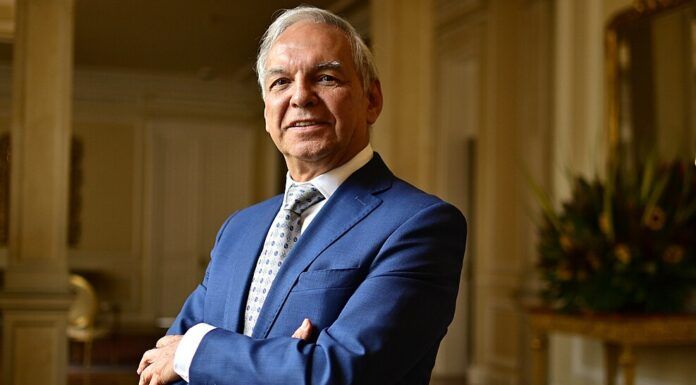Finance Minister Ricardo Bonilla emphasizes the urgency of addressing costly fuel subsidies amid ongoing economic challenges
Colombia’s finance chief, Ricardo Bonilla, recently highlighted the critical need to curtail the nation’s substantial fuel subsidies. He described these costs as a more immediate concern than the renegotiation of Colombia’s agreement with the International Monetary Fund (IMF). Bonilla shared these views while attending the annual IMF and World Bank Group meetings in Washington D.C.
The issue of fuel subsidies has become increasingly pressing for Colombia, which has seen fiscal deficits widen as a result of these costs. In a move to manage the economic burden, the government, under President Gustavo Petro, has begun phasing out gasoline subsidies. However, diesel prices remain largely unchanged, a strategy aimed at avoiding conflict with influential truckers’ organizations that could disrupt freight and public transport sectors.
Embed from Getty ImagesFuel subsidies have long been a contentious issue in Colombia, contributing to a fiscal deficit that is projected to increase to 5.3% of the GDP this year, up from 4.2% in 2023. An independent fiscal rule committee has warned that Colombia is at risk of violating its balanced budget act if these subsidies continue at their current rate.
In contrast to the domestic subsidy issue, Colombia’s debt with the IMF seems less urgent. In 2020, the nation became the first to access a flexible credit line from the IMF, borrowing approximately $5.4 billion. President Petro has expressed intentions to renegotiate this agreement to free up more funds for social programs. However, financial analysts remain skeptical about Colombia’s ability to secure more favourable terms from the IMF.
Bonilla plans to meet with IMF Managing Director Kristalina Georgieva after the IMF and World Bank events, aiming to discuss potential adjustments to the terms of Colombia’s financial aid. The outcome of these discussions could significantly impact Colombia’s economic strategy moving forward, especially in how it balances international obligations with pressing domestic fiscal challenges.
As the government navigates these complex financial waters, the decisions made in the coming months will be crucial for determining Colombia’s fiscal health and economic stability. The nation’s approach to managing its debt and reducing reliance on fuel subsidies will likely shape its economic landscape for years to come.
